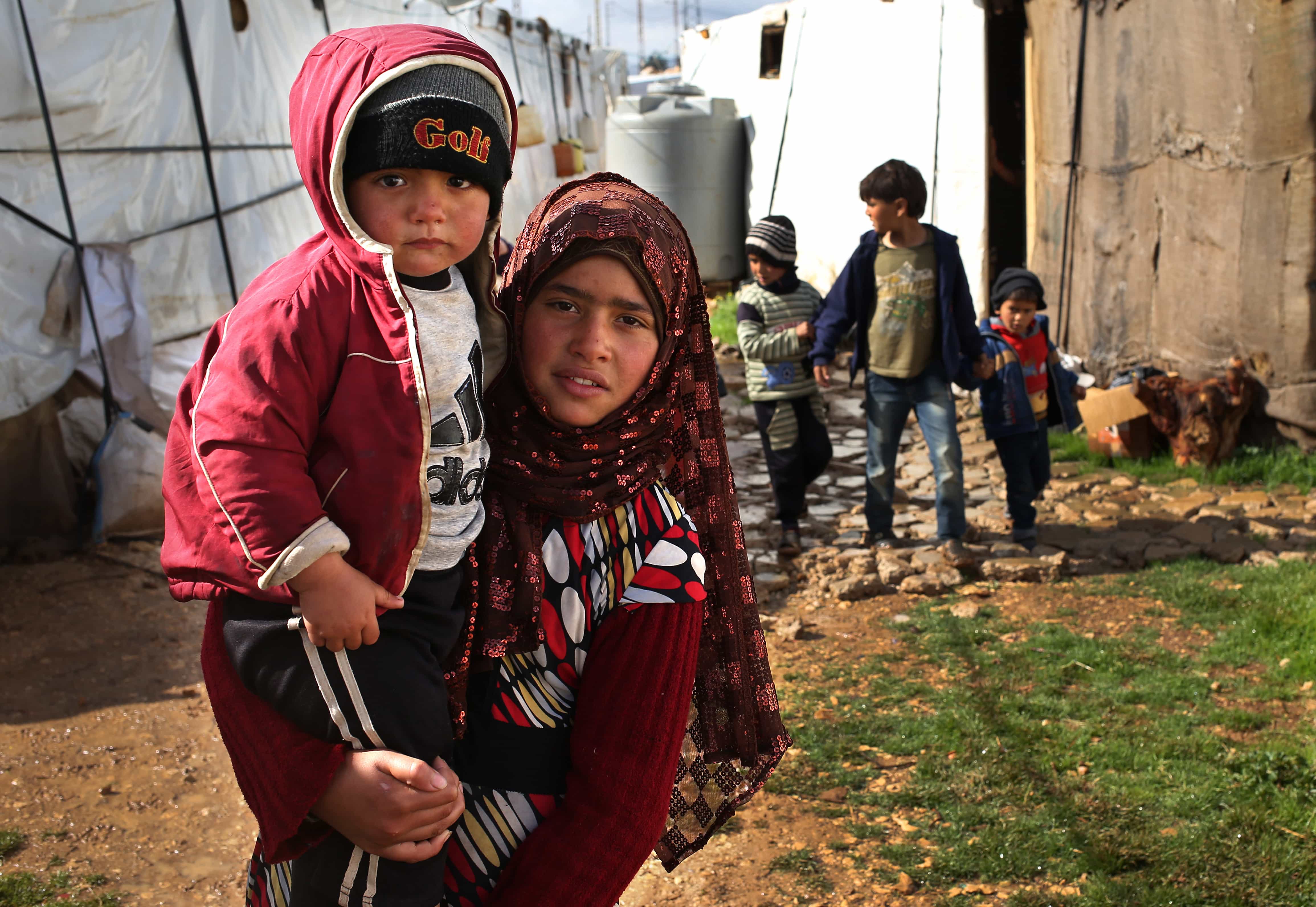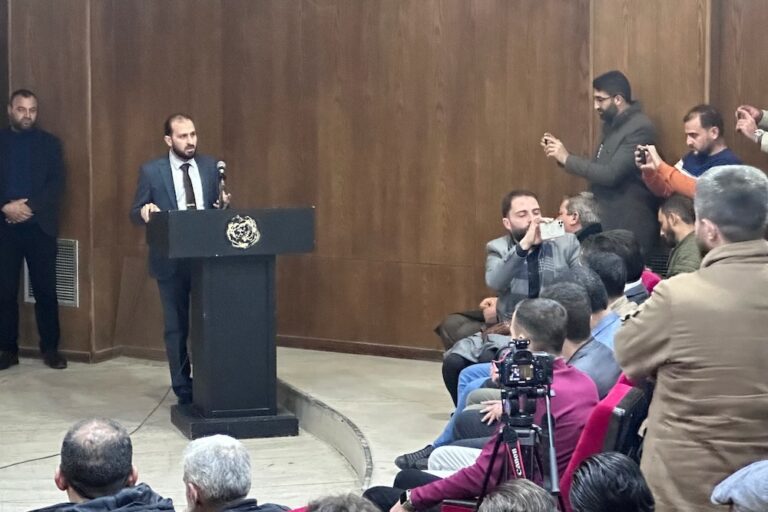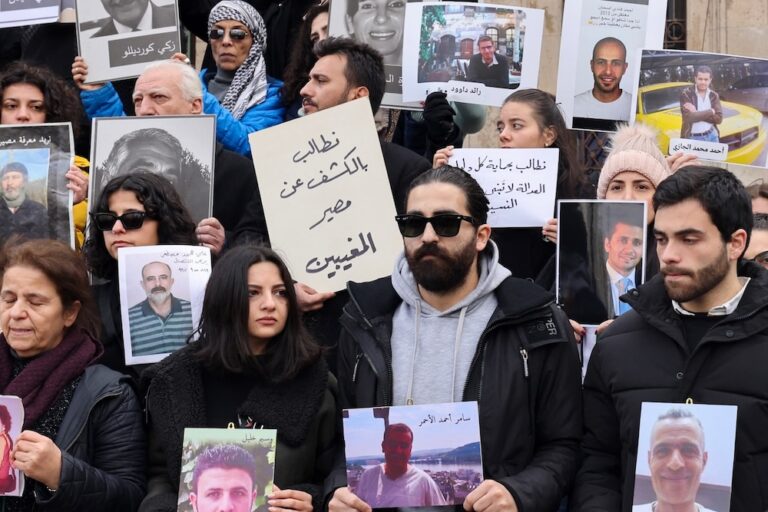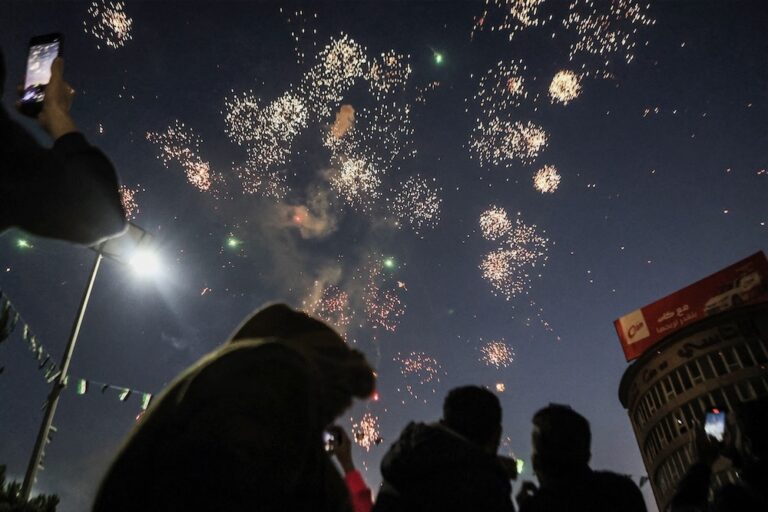“If you speak your mind, or exercise a right to freedom of speech, you get killed. You get tortured. There’s no law to protect Syrians,” said Leila Nachawati, the editor of Syria Untold.
By: Alison Graham
As the uprising against Syrian President Bashar al-Assad turned into a nationwide civil war in 2011, a group of university students gathered in a friend’s basement in Aleppo to write articles and design the cover of their new magazine, Rebel. The Syrian revolution was becoming increasingly violent, but the danger didn’t stop the students in Aleppo from telling important stories about their country.
The magazine did not seek to highlight the violence of the conflict – the bombs, the military operations – and instead focused on human rights, women’s rights and groups doing charitable work in a dark era of Syrian history, Rebel co-editor Rouaa Zayat recounted. The magazine at first was distributed secretly amongst friends, eventually widening to a larger audience.
As one of Syria’s largest cities and strategically located just near Syria’s northwest border with Turkey, Aleppo was heavily guarded by government forces.
“At first we were a little bit scared to get detained or something, but we were too enthusiastic,” Zayat, 21, told the International Press Institute (IPI) in a Skype interview. “These fears are always there, but the dream we were working for made it a little foggy to see the challenges and the things we were afraid of.”
At the same time, Zayat said, refugees from other besieged Syrian cities were flowing into Aleppo. Children came in hordes and were unable to attend school due to their displacement. Some hadn’t attended classes for two or three years.
Zayat and her friends banded together and began to tutor the children in English, math and other subjects to make sure they kept learning. Working on the magazine, attending school and tutoring the children meant that Zayat was working non-stop for 16 hours a day.
“The revolution really had an amazing effect on young people,” she said. “We had a huge energy that submerged us all.”
Zayat was studying computer engineering in Syria, but after bombing began in Aleppo and her university was shelled, she was no longer able to attend classes.
To continue her education, she moved to Turkey to study at the University of Mersin. Her friends also moved to either Egypt or Turkey, and the Rebel magazine disbanded after seven issues.
Zayat then began to study psychology. After living in Syria and seeing the effects of war, she wanted to study something that could help her understand what was happening in her home country and to the people living there.
It was in Turkey that Zayat heard about a website called Syria Untold, which is an online publication in English and Arabic that tells stories of people affected by the Syrian revolution. Syria Untold focuses on promoting the work of Syria-based groups dedicated to the promotion of peace in the country.
Zayat applied for a translator position at Syria Untold, translating stories from Arabic into English for the website. She got the job.
Later on, Zayat also began contributing articles in English, which she writes from Turkey.
A recent article Zayat wrote told the story of a man who was awarded a patent and a Gold Medal of Honour in Syria for inventing a measuring device.
After participating in peaceful demonstrations in Aleppo, the man was detained and tortured, eventually leading him to flee to Lebanon where his patent and medal meant nothing. He had to find work as a construction worker, blacksmith and other jobs while facing discrimination in Lebanon, where more than 1 million Syrians live as refugees, United Nations figures show.
Other articles on the website talk about efforts by people who, using music, graffiti and cartoon drawing, are trying to advance peaceful solutions to the 3-year-old Syrian crisis.
“We hear so much about destruction, but there are people working on construction and building identity,” the editor of Syria Untold, Leila Nachawati, told IPI. “There are people working on art, identity, music, painting the walls from under the rubble, working on weekly graffiti to actually build from the rubble. This deserves a lot of attention and gets none because all the attention is monopolised by geopolitics.”
Nachawati, who lives in Spain and is a professor of communications at Carlos III University in Madrid, believes that most of the media attention is focused on what leaders from other countries want to happen in Syria. The attention should be more focused on what Syrians want and are doing to help their own country, Nachawati said.
Media coverage all over the world has focused on reactions from America, Britain and France when the UN confirmed Syria’s use of chemical weapons. The stories that Syria Untold has published highlight the creativity of Syrian citizens in the face of these chemical attacks.
“The issue of war is that they treat human beings like numbers,” Zayat said. “If you don’t listen to their story, you can’t feel their humanity. When you address the Syrian issue, there’s a lot of pain and courage. You can’t feel that if you don’t listen to their stories.”
Telling those untold stories is the mission of Syria Untold, although accessing people and sources on the ground in Syria proves to be a challenge at times for the website’s journalists.
The website not only has people working and contributing from the ground in Syria, but works with students like Zayat who still have many contacts in Syria.
“If you speak your mind, or exercise a right to freedom of speech, you get killed. You get tortured. There’s no law to protect Syrians,” Nachawati said. “There are only laws to protect the regime. You are in constant danger to talk about free speech and democracy in Syria. Those words are off limits.”
“We want to be some sort of spokesperson for all of these amazing initiatives. That is the future of Syria if there is ever going to be one,” Nachawati said. “You hear about Syria without the Syrians and that is the biggest challenge: to get Syrian voices back to where they belong.”



